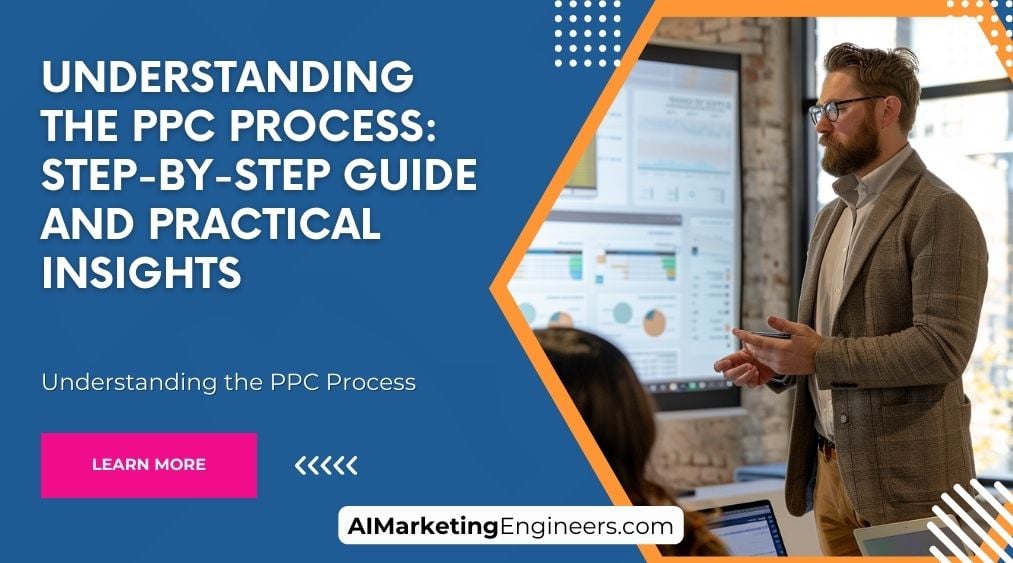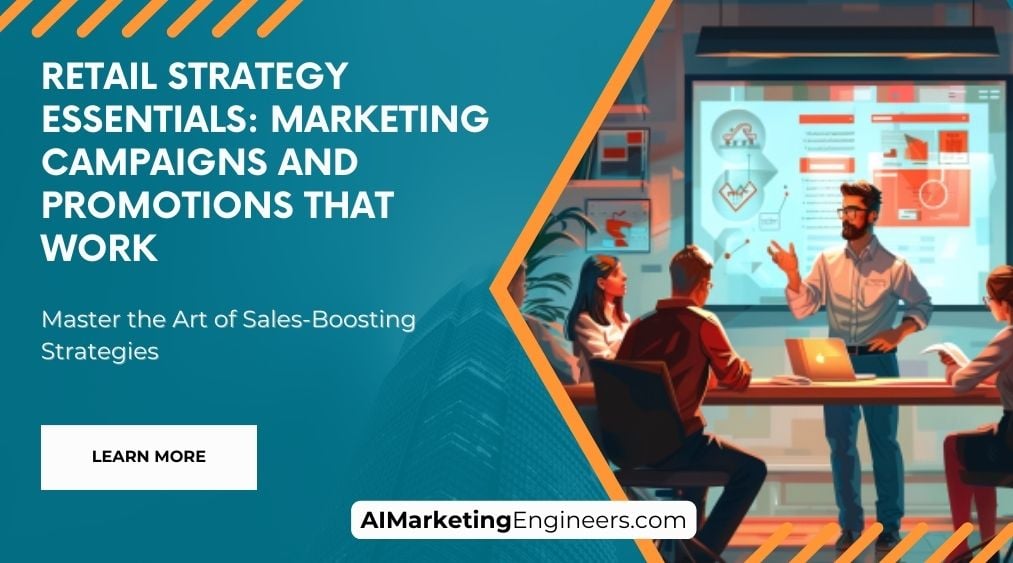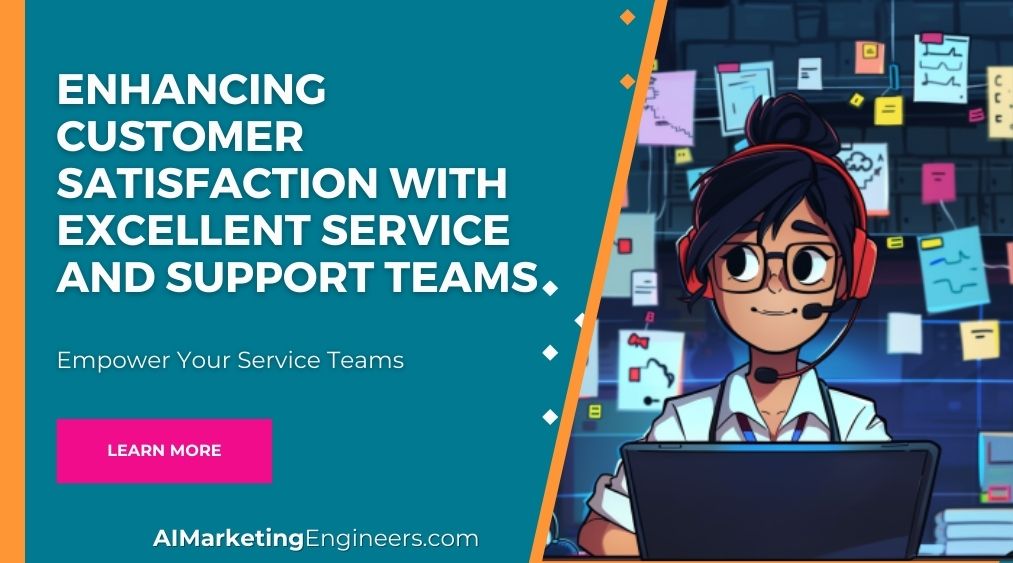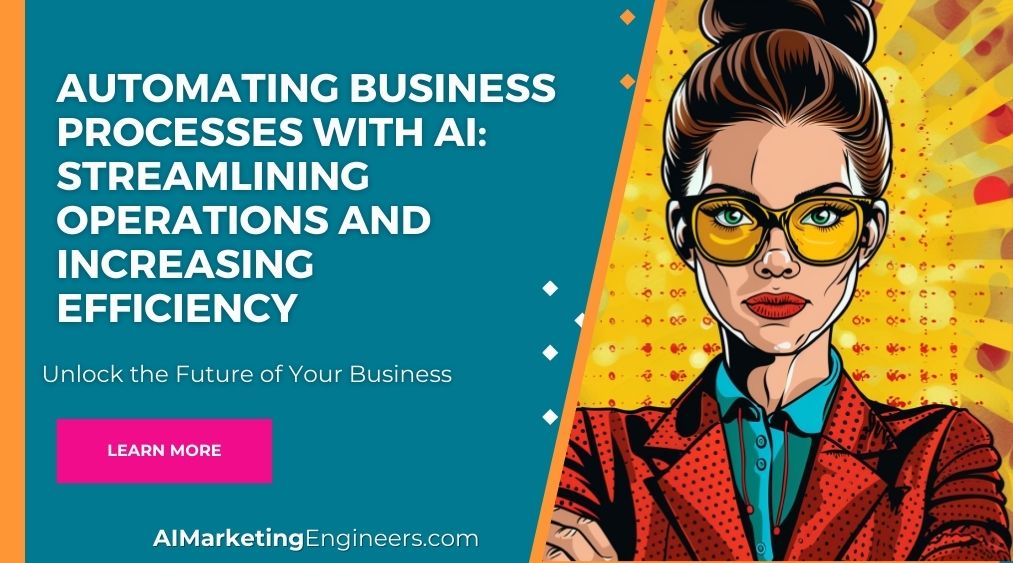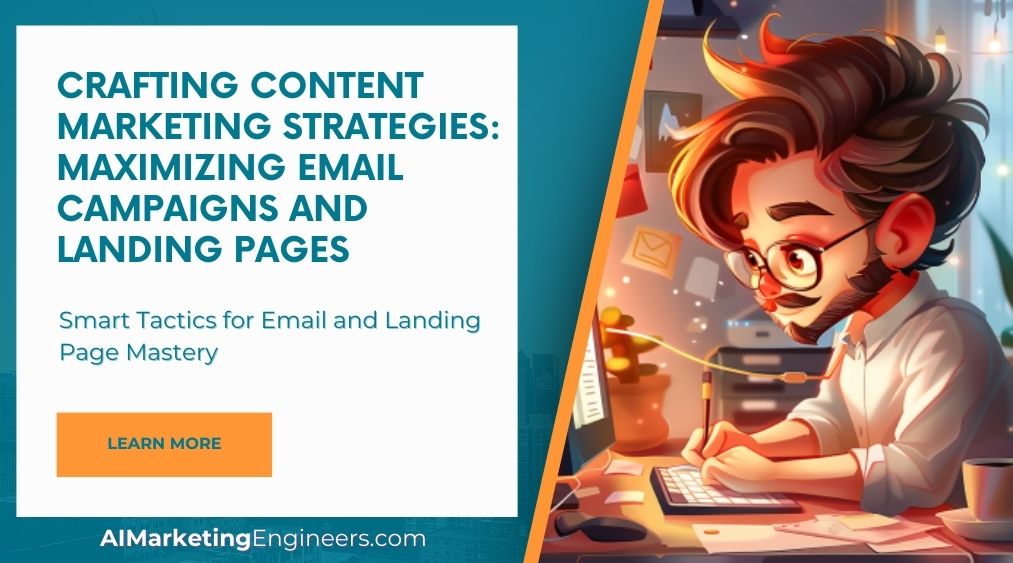Key Takeaways
✅ Define Clear Objectives and Goals: Before diving into PPC, solidify your aims. Want a spike in sales, a broader audience, or substantial profit? Set tangible targets, like a specific Return on Ad Spend (ROAS), to measure success effectively. Strategic goal-setting can boost campaign outcomes by up to 20% according to industry benchmarks.
✅ Keyword Research and Targeting: The heart of PPC success lies in keyword proficiency. Keywords should align with your objectives, addressing consumer intent and search trends. In fact, campaigns using high-intent keywords can see a 600% increase in click-through rates, evidence of the profound impact of precise targeting.
✅ Continuous Monitoring and Optimization: PPC isn’t set-it-and-forget-it; it’s about adapting. Monitor performance indicators like cost-per-click (CPC) and conversion rate religiously. On average, regular optimization can enhance conversion rates by up to 30%, ensuring you're not just spending but also earning.

Introduction
Have you ever considered what fuel powers the engine of modern digital marketing? It's a complex formula, but today we're pulling back the curtain on one crucial component: Pay-Per-Click advertising. In our digital age, an online presence isn't optional—it's essential. With over 4.66 billion active internet users, the potential reach of a PPC campaign is staggering. So, whether you're a seasoned pro seeking to refine your techniques or a rookie ready to jump into the digital arena, mastering the PPC process can propel you to new heights.
Imagine having the keys to a treasure trove of consumer action and interest—PPC is just that. Google Ads alone accounts for a titanic share of web traffic, shaping brand narratives and purchase paths daily. But how do you transform clicks into customers? This guide illuminates the spectrum of PPC—from ironclad strategies to groundbreaking tools—ensuring your advertisements aren't just seen, but also spark action. Get ready to explore innovative perspectives, seize modern trends, and unlock solutions that don't just chase trends but anticipate them. With a promise of actionable knowledge, this article isn't just a read; it's a resource that could redefine your marketing playbook.
Top Statistics
| Statistic | Insight |
|---|---|
| PPC ROI: PPC has an average of 200% return on investment (ROI). | An impressive figure that underscores the effectiveness of PPC campaigns in driving potential financial gains. |
| Visibility: 90% of internet users will see a Google Advertisement. | Demonstrates the vast reach of Google Ads and potential for brand exposure. |
| Highest ROI Channels: Paid advertising channels with the highest reported ROI are Facebook Ads and Google Ads. | Spotlights where businesses might focus their ad spend for optimal results. |
| Conversion Rates: The traffic that comes from PPC advertising converts 50% better than organic advertising does. | Highlights the efficacy of targeted adverts and the importance of a strategic approach in PPC. |
| SEO vs. PPC: PPC is known to generate double the number of website visitors than SEO does. | Emphasizes the power of paid campaigns to quickly boost website traffic compared to organic approaches. |
What is PPC and Why is it Crucial?
Pay-per-click (PPC) is a pivotal player in the digital advertising playbook, allowing businesses to pay a fee only when their ads receive clicks. Now, why should you care? Because PPC can skyrocket sales, boost brand awareness, and set you apart from the competition. In the world where Google Ads reigns supreme, leveraging PPC could be your golden ticket, offering the broadest audience visibility and the most effective user engagement. By targeting specific demographics and search terms, PPC ensures that your ads reach the most relevant audience. It's a cost-effective method as you only pay for actual engagement. Moreover, PPC provides measurable results, making it easier to track and adjust your campaigns for optimal performance.
Step 1: Define Your PPC Goals and Objectives
Before jumping into the PPC pool, it's crucial to establish clear benchmarks. What are you diving in for? Is it the visibility splash of brand awareness or the precision swim towards a specific return on investment (ROI)? Measure the depth of your customer's worth and the affordability of your marketing spend. Peering over at your competition's PPC strategies might also give you a leg up; what's their approach to paid search? Setting precise goals helps in creating a focused strategy. Clear objectives allow you to measure success accurately. Understanding your competition can provide valuable insights and help you identify opportunities.
Step 2: Perform Keyword Research
Your PPC success hinges on keyword research. Select products or services that align with your financial targets or awareness goals. Keyword tools become your underwater sonar here, pinging back data on search volumes and cost estimates. This intelligence lets you cluster keywords into ad groups, serving as a compass to navigate through industry-specific terms that can attract the right customers. Effective keyword research can uncover hidden opportunities. Grouping keywords into relevant categories improves ad targeting. Regularly updating your keyword list keeps your campaigns fresh and relevant.
Step 3: Set Your Budget and Campaign Structure
Determine your financial bandwidth, how much you're willing to allocate to clicks each month. Initiating a test budget may offer valuable insights into expected clicks and conversions. Structuring your campaign is akin to mapping out territories, segments that may cater to various languages or regions. Your product silos should mirror your campaign's architecture, each with its designated purpose and financial commitment. A well-planned budget helps in maximizing ROI. Structuring campaigns by region or product ensures better organization. Regular budget reviews can help in reallocating funds to the most effective campaigns.
Step 4: Build and Launch Your Campaign
Crafting compelling ads is both an art and a science. Ads that resonate are those that capture unique value propositions, zero in on customer benefits, and tug at emotions. Equally important is ensuring your landing page delivers what your ad promises. Anchor your efforts with clear, action-driving calls-to-action (CTAs), set your budget limits, and place bids on cost-per-click that you can sustain. Engaging ad copy attracts more clicks and conversions. Consistency between ad content and landing page enhances user experience. Effective CTAs drive user action and improve conversion rates.
Step 5: Test, Optimize, and Refine
Launching your campaign is just the start. Monitoring performance is a daily doctrine—keep an eagle eye on click costs, competitive stance, and your click-through rates (CTR). Adjust, tweak, and optimize based on the story that on-page metrics tell you. This phase is relentless. Employ tools like the Google Ads Performance Grader to unveil optimization opportunities and enhance campaign efficiency. Regular testing helps identify what works best. Optimization based on data ensures continuous improvement. Keeping up with trends and competitor strategies can give you an edge.
Step 6: Report and Refine
In PPC, looking back is as important as looking ahead. Compile comprehensive reports that chronicle your journey and make these archives easily retrievable. Let the lessons of today's campaigns inform tomorrow's strategy. Like a gardener pruning for better blooms, refine your PPC efforts with discernment, using insights from reporting and analysis to cultivate a more fruitful digital advertising garden. Detailed reports provide insights for future strategies. Analyzing past performance helps in making informed decisions. Continuous refinement leads to sustained campaign success.
AI Marketing Engineers Recommendation
Recommendation 1: Optimize for Voice Search in PPC Campaigns: With the rise of voice-activated devices like Amazon Alexa, Google Assistant, and Apple's Siri, optimizing your PPC keywords for natural language queries has become essential. Phrases such as "near me" or question-based searches have significantly increased in popularity. According to ComScore, it was anticipated that 50% of all searches would be voice searches by 2022. Reflecting this trend in your PPC strategy is crucial for capturing this growing audience. By tailoring your keywords and ad copy to match the conversational tone used in voice searches, you can improve the relevance of your ads and reach potential customers more effectively.
Recommendation 2: Leverage Artificial Intelligence for Bid Optimization: AI-driven platforms are transforming how we manage bids in real-time. Utilizing tools that incorporate machine learning can analyze vast amounts of data and predict the best bidding strategies for your PPC campaigns. Google Ads' Smart Bidding, for example, uses advanced algorithms to help you maximize conversions and optimize your ad spend efficiently. This technology continuously adjusts bids based on the likelihood of a click converting, taking into account various factors like device, location, and time of day. By leveraging AI for bid optimization, you can stay competitive in the dynamic landscape of online advertising and achieve better results with your budget.
Recommendation 3: Utilize Responsive Search Ads for Greater Reach: Embracing Google's Responsive Search Ads (RSAs) can significantly enhance your ad performance. RSAs automatically test different combinations of your headlines and descriptions, using Google's AI to learn which combinations perform best for various queries. This not only saves time but also ensures that your ads are more relevant to potential customers. According to data from Search Engine Land, advertisers who switch to RSAs can experience up to a 15% increase in clicks. By utilizing RSAs, you can benefit from AI-driven optimization, reaching a broader audience with tailored ad content that resonates with diverse search intents.
Relevant Links
- Maximize PPC Strategy with AI Technology
- Master Baidu SEO and Dominate China's Search Engine
- Unlocking Consumer Journeys in China Through Advanced Analytics
- Performance Metrics Essentials for PPC Success in China
- Optimizing PPC Ad Content for Local Indian Markets
Conclusion
Understanding how PPC works is more than just recognizing it as an abbreviation for pay-per-click. It's about grasping the pivotal role PPC plays in driving sales, increasing brand visibility, and standing out in a sea of competition. Remember that every click in PPC is not just a metric—it's a potential customer expressing interest in what you offer. Reflect on the journey we've taken, from defining your goals in Step 1, where the cornerstone of your campaign's foundation was laid, to the continuous cycle of testing, optimizing, and refining in Steps 5 and 6. It's this meticulous process of sculpting your PPC strategy that leads to those moments of success—where your ad not only gets clicked but fulfills its destiny by turning a searcher into a buyer.
In a realm where Google Ads reign supreme with its far-reaching influence, remember that every aspect of your PPC campaign can and should be tailored to echo the unique voice of your brand and the desires of your target audience. From the trenches of keyword research to the peaks of ROI analysis, each step is a powerful gear in the intricate mechanism of digital marketing. So, has this guide illuminated the path to PPC proficiency for you?
The numbers speak volumes, but the true victory is in comprehending and applying these insights to forge a campaign that's both cost-effective and strikingly effective. Now, armed with this knowledge, dare to ask yourself: How can you mold your next PPC endeavor to not just exist within the digital marketplace, but to truly thrive within it? Lean into that challenge, and watch as your understanding of clicks transforms into the currency of customer connections and growth for your brand.
FAQs
Question 1: What is PPC marketing?
Answer: PPC marketing is a way advertisers can pay each time someone clicks on their ads. It helps bring people from search engines or other sites to their own website.
Question 2: What is Campaign Management?
Answer: Campaign Management is about running an ad campaign on Google AdWords and making sure you get the most out of what you spend.
Question 3: What is Google AdWords?
Answer: Google AdWords is a service from Google that lets businesses show ads on Google's search engine and network of sites. These ads show up when people search for things that are related to what the business is selling.
Question 4: How do AdWords work?
Answer: AdWords use a bidding system. If you bid more, your ad is more likely to be seen. You only pay when someone clicks on your ad.
Question 5: What is the actual cost per click?
Answer: The actual cost per click isn't something you can see because it's decided in an auction. It's usually calculated by dividing the ad rank you want to beat by your Quality Score and adding one cent.
Question 6: How do you combine AdWords with your PPC strategies?
Answer: You can make AdWords one part of your overall PPC plan, making sure everything works together well.
Question 7: How do you use ad trafficking?
Answer: Ad trafficking is about getting your ads in the right places so that they reach the right people.
Question 8: What are common PPC mistakes and how can I avoid them?
Answer: A typical mistake is going after the wrong keywords. Try to reach people who are nearly ready to buy to avoid this.
Question 9: When should I use PPC vs. SEO?
Answer: If you want short-term results or to try out new words before adding them to your long-term SEO, go for PPC.
Question 10: How long does it take for PPC to work?
Answer: It usually takes about a month to get a campaign up and running. Then, it improves as you make changes based on the campaign's performance.
Academic References
- Academic Writer. Using the Reference Center in Academic Writer. Retrieved from Academic Writer. This webinar recording describes the essentials of the Reference Center in Academic Writer, showcasing how to effectively manage academic references and use advanced importing and citing tools.
- Association of American Medical Colleges. PPC Application Procedures & Requirements. Retrieved from AAMC. This document details the application steps and necessary qualifications for the Postbaccalaureate Premedical Certificate program, emphasizing the importance of both professional and academic references.
- University Faculty Senate. PPC History and Process. Retrieved from the University Faculty Senate Website. This resource delivers a historical backdrop and explains the contemporary mechanisms of the Professorial Promotions Process, including the comprehensive criteria and the pivotal roles of the involved committee.
